We all want what we can’t—or don’t—have. It’s human nature. I thought fly fishing would settle me enough that I wouldn’t thirst for more, but it seems as if there’s always a better way to catch more fish.
I started out wading, then went to a kayak, then a canoe, then a paddleboard and finally a boat. Twenty five years after my first cast, I graduated to a skiff, a 14-foot Riverhawk.
I thought I had found nirvana, a new toy that would lead to acres of redfish tails. And the little boat certainly has enhanced my time on the water, but that enjoyment has been tempered with stretches of frustration.
Given that journey during the last year or so, here’s a primer for the first-time boat owner, what you should own a boat, why you shouldn’t.
Why You Should
Accessibility
Paddle power and fishing on foot have their place. In the mountains of Virginia, where I first started fly fishing, you didn’t need a boat. Wading was fine.
I now live in Florida where saltwater is the name of the game. You don’t necessarily need a boat—a kayak or paddle board will suffice—but a boat offers more options.
You can’t beat a kayak, paddle board or canoe for stealth. But with the right boat, you can get plenty skinny and cover more water. Since many fly fishermen generally fish over the course of a two-hour tidal flow (the first of the low) for most inshore situations, your window for targeting fish is limited.
With a kayak, you get one shot at one flat or creek. With a boat, you can sample two or three spots before you run out of time and the water gets too deep to sight fish.
“You can access water you wouldn’t be able to get to otherwise,” said Tim Boothe of Old City Guide Service in St. Augustine, Fla. “That’s big.”
A boat allows you to run-and-gun. It also can also navigate geographical limitations. With a kayak, it’s difficult to buzz up and down the intracoastal or cut across an inlet. In a boat, you can do both, which means better access to more spots. In my kayak, I had to fish fairly close to the ramp. In my boat, with good weather conditions, I can run up and down the ICW.
Visibility
In saltwater fly fishing, height and sight are everything. The more you can see the more you’re going to catch. I can stand in a kayak or a paddle board, but a boat with a good casting deck and platform allows you to see even more. Ever wonder why the guide on the poling platform can see more than his client? One, he’s trained to do so; two, he’s up higher than the guy on the bow.
More Fishing Opportunities
This concept may seem rather vague. Once you have a boat, you develop trailering skills and basic nautical know-how—launching, docking, etc.—and your friends with a boat will be more apt to invite you. When I had a kayak, I was pretty much useless when going out with my boating friends. Now I can back up the trailer and run the boat and pole, contributions that make the trip more enjoyable for both anglers.
Why You Shouldn’t
Cost
Boats are expensive. The initial cost can be about the same as a good paddle board or kayak. My boat-motor-trailer setup runs about $2,500 used. What’s deceptive is the cost of the maintenance. Here’s a quick rundown of what I dealt with the first month of ownership: $150 for the trailer hitch on the Jeep, $150 for the installation, $40 for a spare ball, $100 for tags/registration. And that’s before I even got the boat in the water.
“Yes, you can cover more water, and that’s good,” said Chris Hargiss of Fly Quest Charters in Sarasota. “But owning a boat is expensive. The upkeep is constant.”
The Learning Curve
I bought a kayak and was on the water solo in a matter of hours. Not so with a boat. It took a dozen or so sessions with the trailer to learn how to back up and launch before I got comfortable. Then there’s basic maintenance. Keeping a motor and trailer in good, working condition is a chore, particularly in saltwater. For instance, if you let your gas get a little stale, that will gunk up a carb instantly, which results in a visit to the mechanic, not to mention more money and less time on the water. Forget to flush the motor with freshwater? The result is the same.
Fishing Solo
Like to fish alone? You probably should not get a boat. Boats are largely a two-person game when fly fishing. One person controls the boat by poling or using the trolling motor and the other fishes, then the two anglers switch duties. If you like to fish alone, a kayak is for you. You paddle, you pole and you fish. Sure, you can fish solo from a skiff, but doing so from a kayak or paddle board is much easier because everything you need is at arm’s length.
“If you have a boat, you’re generally always looking for someone to fish with,” Hargiss said.
The other obvious advantage of a kayak is fewer problems. Engine propulsion is great, but motors break down and can leave you stranded miles from the closest launch. Which would you rather paddle, a kayak or skiff?
“If you take a skiff out and don’t know what you’re doing, it can be nasty,” Hargiss said.
Final Word
Unfortunately, there is no perfect watercraft. Kayaks, canoes, paddle boards and boats all have their place. I still have all four at my disposal. All have their limitations. All have their strengths. To be honest, I’ve thought about dumping each one, but I’m glad I didn’t, because over time, I’ve learned to appreciate what each has to offer.

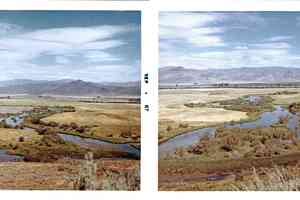



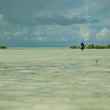

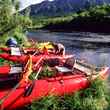
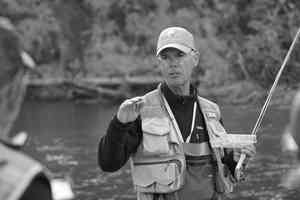
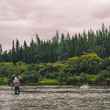


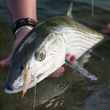
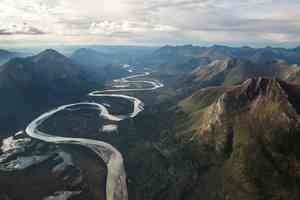

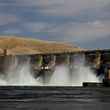

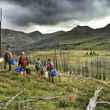
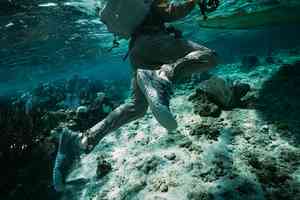
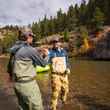
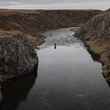


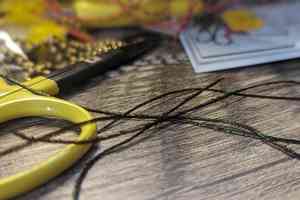
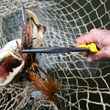
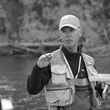
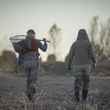
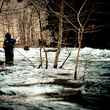
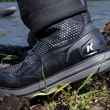
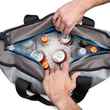
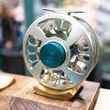
Comments
BERT BREHM replied on Permalink
TLDR; You need four boats ... minimum.
Eric replied on Permalink
What an idiot. Obviouslythe author of this article is a neophyte trying to inform
Fred Rickson replied on Permalink
B.O.A.T.....Break Out Another Thousand....owner of boats for about 60 years.
Further North replied on Permalink
Good stuff...
Only one comment: I own a boat and fish by myself 90% of the time.
The key to that is a good trolling motor...and learning how to not get the fly line wrapped up in it...
Larry Blue replied on Permalink
Only boat I’ve own is a float tube for small lakes, i’ve also used in the bow river in Alberta Canada, if I did own a boat and Motor, it would be a Duckworth boats Clarkston Washington, I would use it in freshwater only for larger lakes or reservoirs and rivers for a variety of fish species and keep the maintenance up.
Jim Quearry replied on Permalink
If you paid $150 for a hitch and $150 for installation you got what we in Indiana call
A royal screwing.
Twolouie12 replied on Permalink
Best advice I can offer at 65:
Buy a barn early.
Buy what you can afford over time. Accumulate and dispense as needed
Take care of your "equipment" first and always.
Live life to the fullest
Pages